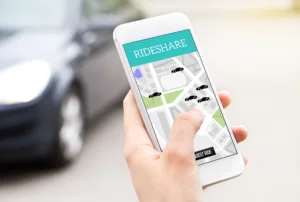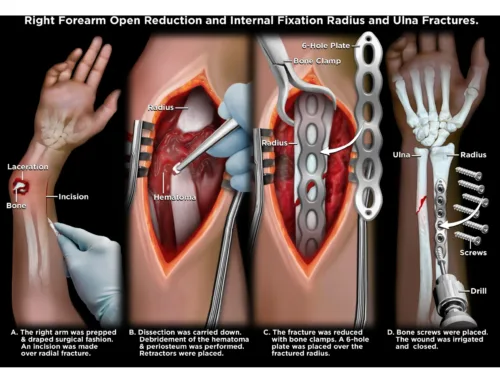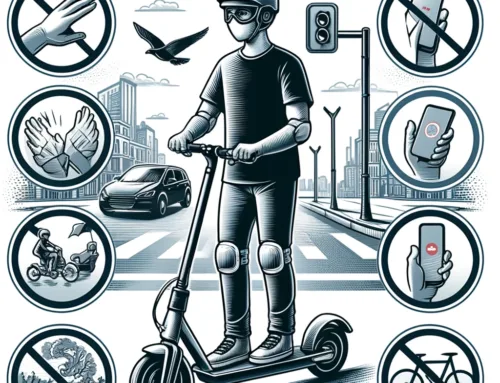Dealing with the aftermath of an automotive accident and filing an injury claim is stressful and complicated enough when your own vehicle was involved in the crash – in that case, you have the benefit of knowing your own insurance provider and policy coverage. When you’re involved in an accident while riding as a passenger in a Lyft ride-share vehicle, or while driving for Lyft, or when you are struck by a Lyft driver, resolving your injury claim has the potential to become much more confusing.
While ride-share apps have been around for a number of years, the laws governing them are still working to catch up, and each new piece of legislation has the potential to affect the way accident claims work. Making matters more complicated, Lyft keeps changing the insurance providers they work with. If you’ve been in a Lyft auto accident, you need current, up-to-date information on how to pursue your injury claim, and an attorney who keeps on top of the changes in legislation and insurance that affect Lyft accident claims.
Auto Insurance and Ride Sharing
Under the ride-share business model by which Lyft and other similar businesses operate, drivers use their own personal vehicles to supply transportation to customers on a contract basis. While Lyft drivers are expected to maintain their own insurance policies on their personal vehicles, most insurance companies will not allow this personal coverage to extend to circumstances when the vehicle is being used for a commercial purpose. Some insurance providers offer special policies for ride-share drivers, but Lyft also maintains insurance that can apply to accidents involving their drivers. In the state of New Jersey from October 1, 2023, to October 1, 2024, this insurance coverage is provided by Liberty Mutual Fire Insurance Company. But because Lyft drivers are using their personal vehicles and are only sometimes “on the clock,” the applicability of Lyft’s insurance coverage is complicated.
 In the eyes of the insurance provider, there are three distinct phases that a Lyft contractor can occupy, and the insurance coverage applies, or doesn’t apply, differently depending on which phase they are in. The three phases are:
In the eyes of the insurance provider, there are three distinct phases that a Lyft contractor can occupy, and the insurance coverage applies, or doesn’t apply, differently depending on which phase they are in. The three phases are:
- The Lyft app is off (driver is not logged in).
- The Lyft app is on, and the driver is waiting for a ride request.
- The Lyft app is on, the driver has accepted a ride request, and is either on the way to pick up a passenger or in the process of transporting a passenger.
The first case is the simplest. If the app is off, the motorist is not acting as a Lyft driver in that moment, and only the driver’s personal car insurance coverage applies in the event of an accident, not Lyft’s coverage. The accident has nothing to do with Lyft, and the driver is treated like any other motorist.
In the second case, in which the Lyft driver has turned on the app and is waiting to receive a ride request, Lyft maintains liability coverage for accidents that take place during this phase. This policy takes effect only if the driver’s personal auto insurance coverage does not apply. In New Jersey, the amount of third-party liability coverage provided under Lyft’s policy is $50,000 per person or $100,000 per accident for bodily injury, and $25,000 per accident for property damage. In simple terms, if you are injured in an accident caused by a Lyft driver who is actively waiting for a ride request to come in on the app, and the driver’s personal car insurance refuses to cover your injuries because the driver was using their vehicle for commercial purposes at the time, this is the coverage that will be available to you under Lyft’s insurance policy.
The third case, in which an accident occurs while a ride-share passenger is actually present in the Lyft driver’s vehicle (or while the driver is on their way to pick up a passenger, after accepting their request on the app), is the scenario that most people find themselves concerned about. Therefore, naturally, it’s the situation with the most complex insurance logistics.
Accidents During a Lyft Ride
From the perspective of the Lyft passenger, or the pedestrian or occupant of another vehicle involved in an accident with a Lyft driver, the most relevant figure is $1,000,000 in third-party auto liability. In other words, in any car accident in which the Lyft driver is responsible, and which takes place between the moment the Lyft driver accepts a ride request and the moment the passenger is dropped off and the ride ends, there is a total pool of $1,000,000 in insurance coverage to pay for any injuries or property damage resulting from that accident. Lyft asserts that this coverage is intended to act as the primary insurance coverage for the period of time that a ride request is active, but does note that if a driver carries a commercial insurance policy of their own, or if their personal auto policy provides ride-share coverage, that the coverage from these other policies will be applied to your claim first, and the liability coverage provided by Lyft will apply to any damages in excess of what those policies cover. This may mean that your attorney needs to file separate injury claims against all the policies that apply to your accident.
For the Lyft driver who is involved in an accident, regardless of fault, the matter of insurance is no less complicated. First, Lyft offers what it calls “contingent coverage,” both collision and comprehensive. What this means is, the coverage Lyft offers only applies if the driver maintains coverage of the same type on their own personal auto insurance policy. Collision coverage applies to any vehicle damage suffered as a result of an accident or crash, while comprehensive coverage applies to physical damage to the vehicle resulting from other types of events – such as a vehicle break-in or act of vandalism, a tree branch falling on the vehicle, striking a deer, natural disasters, and the like. Both the contingent collision and comprehensive coverage will apply up to the cash value of your vehicle or the cost to repair it (whichever is less), minus a substantial $2,500 deductible. This coverage applies regardless of who was at fault, but it is only applicable if the damage occurs while a ride request is active.
With regard to other types of coverage protection for Lyft drivers, the company is somewhat vague. Lyft asserts that first-party coverage options “may include” a range of coverage types, including uninsured/underinsured motorist coverage and personal injury protection (PIP). However, in the state of New Jersey, taxis and limos are not required to offer PIP coverage benefits, leaving the choice to purchase this coverage at Lyft’s discretion. Fortunately, according to Lyft’s current Certificate of Liability Insurance for the state of New Jersey, the policy that Lyft currently maintains with Liberty Mutual does include some measure of both PIP and uninsured/underinsured motorist coverage, though drivers are wise to inquire with Lyft under which set of conditions these coverage types apply. At minimum, a driver should be able to expect that up to $10,000 in medical expenses will be covered by Lyft’s PIP insurance.
Pursuing an Injury Settlement
Once your attorney has filed your injury claim with the relevant insurance company (or companies, in the case of multiple applicable policies), you wait for the insurance provider’s initial compensation offer. If you’ve been seriously injured, it’s likely that this initial offer will be substantially lower than your injuries warrant, making it crucial to have an experienced injury lawyer who is familiar with the intricacies of dealing with ride-share companies like Lyft. After receiving that initial offer, the settlement negotiation process will begin.
Like all insurance companies, Lyft’s insurance provider is motivated to pay you as little as they can get away with. How that affects the amount of time it takes them to reach an acceptable settlement in your case depends in part on which phase the Lyft driver was in when your accident took place. The second phase discussed above, when the driver is waiting for a ride request to come in, Lyft’s injury coverage limits are $50,000 per person or $100,000 per accident. If an accident victim has serious injuries, Lyft runs the risk of that person’s injury damages exceeding their coverage limits, and the company being held liable for the rest. In these cases, there’s pressure to reach an acceptable settlement quickly in the hope of keeping the cost of the payout under their policy limits.
On the other hand, if the accident took place during that third phase while a ride was active, the liability limit is $1,000,000. Only the most severe and extreme injuries are likely to reach or exceed that sum, so in most cases, Lyft is in no danger of exceeding their coverage limits. That means they’re under much less pressure to settle. It’s easy for a big insurance company to drag out settlement negotiations while the accident victim seeking fair compensation is worried about medical bills and struggling to pay their living expenses while recovering from their injuries. In many cases, the threat of a lawsuit – with the potential for a jury award much higher than the claimant might agree to settle for – is enough pressure to convince the insurance company to negotiate fairly and promptly.
Dealing with an automotive injury claim is stressful and difficult at the best of times, and when ride-share companies like Lyft are involved, several more layers of complexity and frustration stack on. Working with an experienced injury attorney is the best way to get the compensation you deserve.
Contact MyNJInjuryLawyer
Have questions? Need answers about an injury that occurred in New Jersey as a result of someone else’s negligence? If you or a loved one suffered an injury in an accident, you should contact an attorney familiar with handling these claims. My NJ Injury Lawyer Howard P. Lesnik, Esq. offers free strategy sessions to address any issue or questions you may have about your injury, medical bills or your accident claim.
Please contact NJ Injury Lawyer Howard Lesnik, Esq., immediately if you were involved in a pedestrian accident and were injured or suffered damages. I personally handle NJ personal injury cases on a regular basis. Please contact me now by email, by phoning 908.264.7701, or by completing the form to the right to schedule your complimentary 30-minute strategy session.







